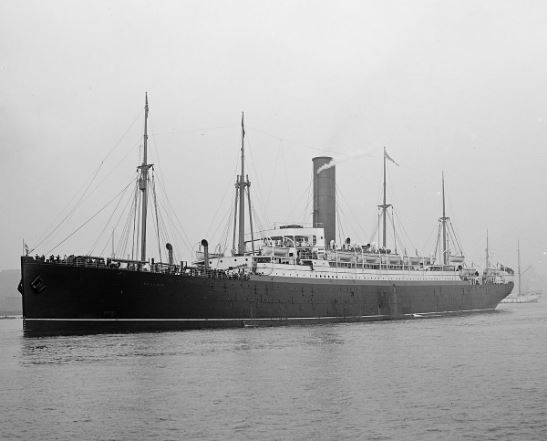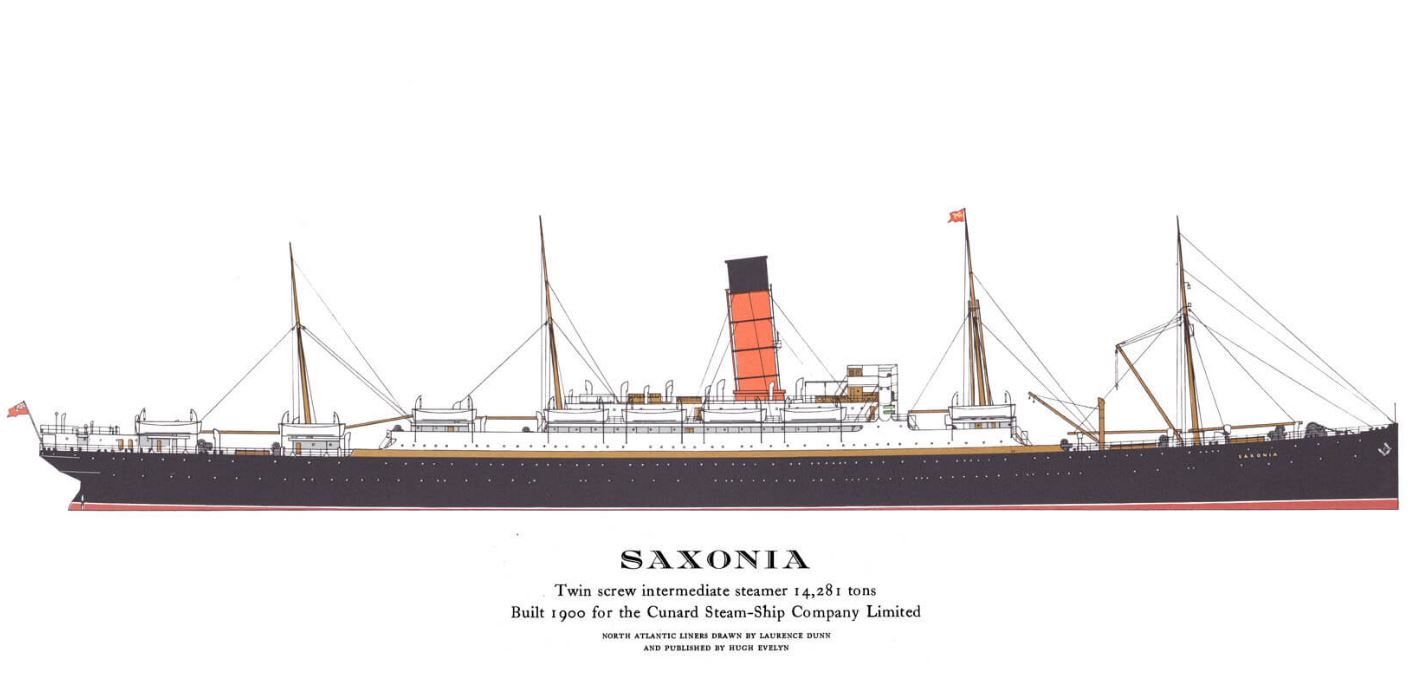Difference between revisions of "HMT Saxonia"
From Our Contribution
| Line 29: | Line 29: | ||
==Remarks== | ==Remarks== | ||
| − | Built for the Cunard Line to ply the Liverpool to Boston and Liverpool to New York routes. When the United Kingdom entered World War I in August 1914, Saxonia was requisitioned for government service and taken off her then Trieste-Boston route. | + | Built for the Cunard Line to ply the Liverpool to Boston and Liverpool to New York routes. When the United Kingdom entered World War I in August 1914, ''Saxonia'' was requisitioned for government service and taken off her then Trieste-Boston route. |
| − | She made a single voyage as a troopship, then was tied up in England on the River Thames as an accommodation ship for German prisoners of war. In March 1915, she resumed service as a troopship, receivig a major refit in 1920. Initially she could carry 164 first class, 200 second class, and 1,600 third class passengers, but this was reduced to 1,449 total after her 1920 refit. In 1925, the aging and outdated Saxonia was sold to the Hendrik Ido Ambacht company in the Netherlands for scrapping. | + | She made a single voyage as a troopship, then was tied up in England on the River Thames as an accommodation ship for German prisoners of war. In March 1915, she resumed service as a troopship, receivig a major refit in 1920. Initially she could carry 164 first class, 200 second class, and 1,600 third class passengers, but this was reduced to 1,449 total after her 1920 refit. In 1925, the aging and outdated ''Saxonia'' was sold to the Hendrik Ido Ambacht company in the Netherlands for scrapping. |
==Soldiers carried== | ==Soldiers carried== | ||
Latest revision as of 00:33, 12 October 2023
Remarks
Built for the Cunard Line to ply the Liverpool to Boston and Liverpool to New York routes. When the United Kingdom entered World War I in August 1914, Saxonia was requisitioned for government service and taken off her then Trieste-Boston route.
She made a single voyage as a troopship, then was tied up in England on the River Thames as an accommodation ship for German prisoners of war. In March 1915, she resumed service as a troopship, receivig a major refit in 1920. Initially she could carry 164 first class, 200 second class, and 1,600 third class passengers, but this was reduced to 1,449 total after her 1920 refit. In 1925, the aging and outdated Saxonia was sold to the Hendrik Ido Ambacht company in the Netherlands for scrapping.

